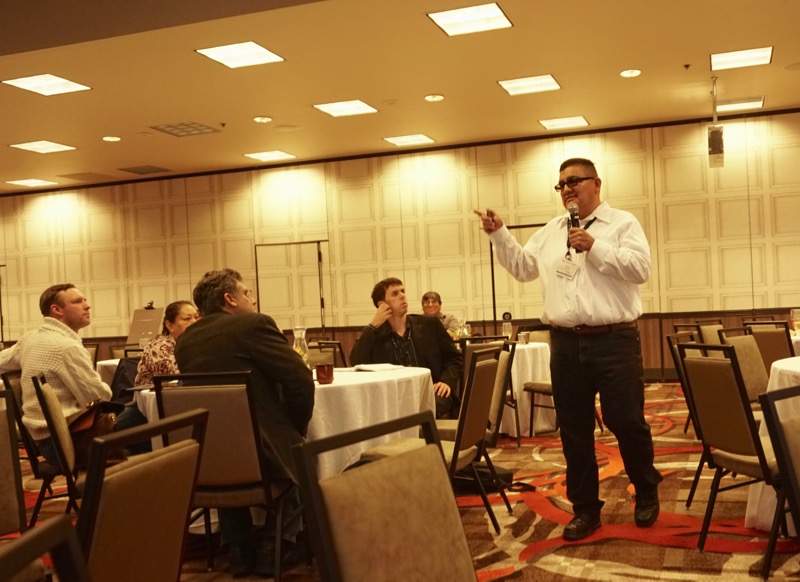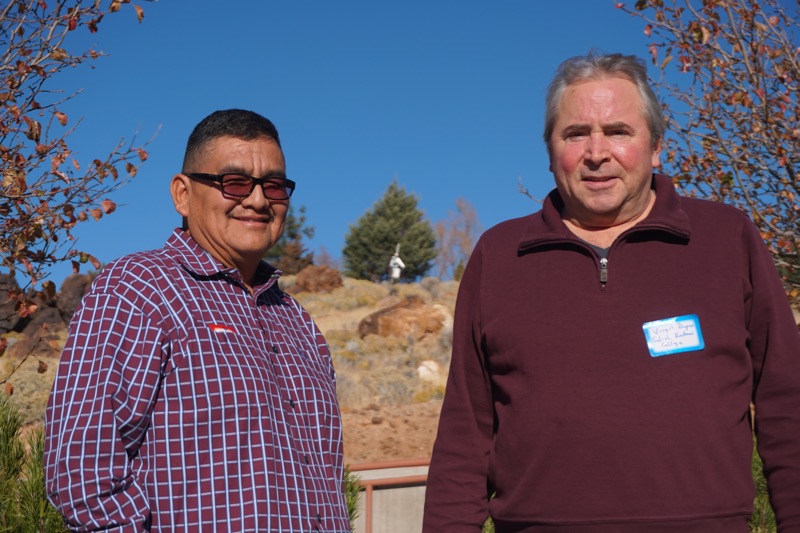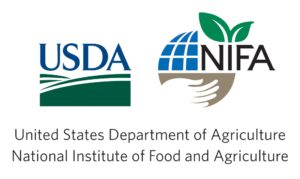Native Waters on Arid Lands Podcast
Episode 10: Educational opportunities in science with Steven Chischilly and Virgil Dupuis
In episode 10 of the Native Waters on Arid Lands podcast, we talk with Steven Chischilly and Virgil Dupuis about their work with the Native Waters project in the sector of education. Steven is an Associate Professor of Environmental Sciences and Natural Resources at Navajo Technical University in New Mexico. Virgil is the Extension Director at Salish Kootenai College in Montana.
Listen to the podcast and read below to learn more about Steve, Virgil and their work. A transcript of this podcast is available here. You can subscribe to this podcast on iTunes, Google Play and Stitcher.
Connecting tribal students with opportunities in education
Steven Chischilly and Virgil Dupuis have each spent the majority of their careers helping to connect tribal students with educational opportunities in the sciences — Steven, through 21 years of teaching at Navajo Technical University, and Virgil, through 20 years as Extension Director at Salish Kootenai College.
During that time, they have become familiar with the challenges that many Native American students face when pursuing higher education. They have also seen firsthand the impact that completion of a degree program can have on students, their families and communities as students move on into successful careers.
As Steven explains in the podcast, he encourages all of his students at Navajo Technical University to take advantage of undergraduate research opportunities. Internship programs, such as those offered by federal government agencies, may provide housing, stipends and hands-on experience with real-world research projects. These experiences, Steven says, provide the students with valuable job skills.
“I’ve been doing this for 21 years now, and I think [what I like best is] making an impact on my tribe’s not only workforce but the educational legacy for the students that are there,” Steven said. “I like to think I’m making a difference in terms of helping them obtain an education on the reservation that they’re wanting, through the implementation of a curriculum that addresses tribal needs.”

Steven Chischilly speaks during the Tribal Education Forum at the Native Waters on Arid Lands 2017 Tribal Summit.
At Salish Kootenay College, Virgil works with students on research projects with direct benefits for the tribe — invasive species research, a community gardening project, and research on food sovereignty, to name a few.
“I enjoy the freedom I have working at the college,” Virgil said. “I work on projects that are highly interesting. They are relevant – they make a big difference in what we’re looking at and what we’re doing. I like to see students do well.”
Coordinating research efforts
As part of the Native Waters on Arid Lands team, Steven and Virgil are working to coordinate research efforts from their home colleges and universities in support of Native Waters project objectives. As Virgil explains in the podcast, the forestry program at Salish Kootenai has been collecting tree ring borings and sediment borings from high mountain lakes. They have applied for funding in cooperation with the Native Waters project to research paleoclimate and to investigate options for how tribes might manage forest resources in the future.
At Navajo Technical University, Steven is doing research to investigate the effects of climate change on the pinyon pine. He hopes to integrate this information into Native Waters project activities. He is also working on a project to get youth from the Navajo Nation involved with planting and preparing traditional foods, which is an area of interest for many Native Waters project team members.
More, on the podcast
To learn more about Steven and Virgil’s work with the Native Waters on Arid Lands project, listen to podcast episode 10, below. Music for this podcast came from Podington Bear (song title: Bit Rio) on the Free Music Archive under a Creative Commons license.
Podcast: Play in new window | Download
Subscribe: RSS




